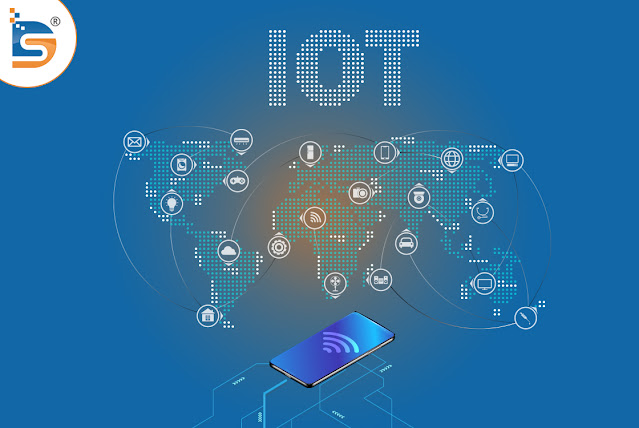Fastest-growing areas for Internet of Things applications
The Internet of Things (IoT) is a futuristic technology that is already becoming a reality. Mobile apps will serve as a point of connection for a large number of IoT devices.
In a nutshell, the Internet of Things refers to physical devices (or groups of devices) that are equipped with sensors, software, and other technologies, as well as the ability to communicate and exchange data with other devices and systems via the Internet or other networks (like Wi-Fi or Bluetooth).
The Internet of Things (IoT) has a significant impact not only on individuals but also on businesses and society as a whole. There are some statistics that show that the impact will only get bigger in the future, and just a quick look at them.
Statista estimates that the number of connected Internet of Things devices will increase from 13.8 billion units in 2021 to 30.9 billion units in 2025. This indicates that there will be an increase in demand for IoT apps and devices, as well as an increase in the number of companies developing them.
Fastest-growing areas for Internet of Things applications
Not only can IoT solutions have an impact on individual lives, but also on society as a whole. Consider a smart home concept, biometric scanners, wearable health monitors, voice assistants, or self-driving automobiles as a starting point. All of these examples of the Internet of Things are having a significant impact on how we live, work, eat, train, and function in general.
The Internet of Things has a wide range of applications and opens up several opportunities. In this section, we'll delve a little deeper into the key business areas where IoT technology might be beneficial.
Smart Homes
Utilizing the Internet of Things in the home entails remotely and, if necessary, automatically regulating domestic equipment. In other words, utilizing IoT apps and smart devices enables near-complete management over a home and its surroundings (such as a garden) without physically being present.
Within smart homes, IoT systems range from remote-controlled lighting to automated heating systems that automatically adjust to the owner's preferred temperature settings. Each smart home system includes a complementary mobile app that enables remote control of numerous smart home components from a single dashboard.
Gaming
Statista projects that the gaming sector will generate $2.2 trillion in revenue by 2021. The online gaming sector thrives as a result of cloud computing activities and database storage.
The Internet of Things is adept at bridging the physical divide between gamers and platforms. The development of mixed reality, augmented reality, and virtual reality is an excellent example.
Online game platforms enable the integration between virtual games and the real world. We're discussing casinos and gaming arcades here.
As a result, we can easily examine the real-world experience with cloud gaming. In any case, internet gaming is maturing, and creators must use this opportunity.
Healthcare
If you want to get better at biomedicine and healthcare, you'll need to keep up with new technology. IoT systems will become more common in hospitals, clinics, and other health care facilities, as well as at home. These sensors and gadgets can aid with diagnosis, patient monitoring, resource allocation, and therapy.
Healthcare IoT devices use to monitor patient health statistics in both clinical and non-clinical contexts. These devices can track patients' heart rate, temperature, and blood pressure. This means they do not need to be physically present but still receive the necessary medical monitoring.
Logistics & Transport
Efficiency and punctuality are significant factors in logistics and transportation. IoT systems let logistics organizations track and monitor data to react and optimize operations.
Using IoT sensors in trucks, a delivery company can track deliveries using passive or active RFID tags with GPS. The company must hire developers to construct an IoT app or platform that analyzes data and informs users.
Retail
Retail is another sector of the economy that is becoming more receptive to the benefits of IoT technologies. Also, IoT technology and apps can use to improve background activities such as supply chain management and quality control. IoT can optimize in-store functionality such as click-and-collect management, pricing, and customer service.
Smart farming
Smart farming IoT sensors can detect soil contamination, monitor air temperature, humidity, and soil quality, and automate watering systems.
Manufacturing
Manufacturing is one of the most exciting growth areas for IoT technology. IoT solutions make sense for manufacturing organizations since they already use a lot of gear, devices, and sensors. Well-design and executed IoT systems help to increase the productivity of a typical industrial organization.
Would you like to develop your own IoT Applications? Contact us or drop us an email at hello@sdreatech.com


.jpg)

Comments
Post a Comment